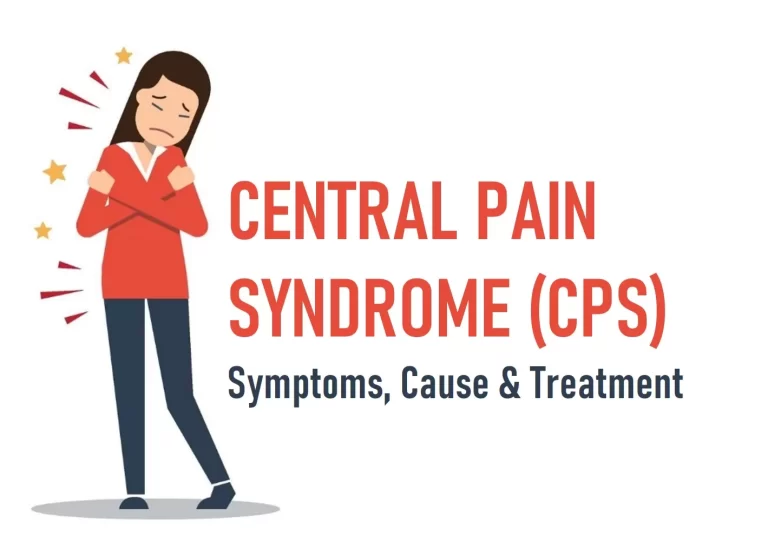Facial Swelling from Tooth Infection
Introduction
Facial Swelling from Tooth Infection, also known as a dental abscess, can cause severe and sudden facial swelling. This occurs when bacteria invade the pulp of the tooth, spreading into the root canal and bone tissue around the tooth. As pus builds up, it puts pressure on the surrounding area, causing the face to balloon up.
Causes
Tooth infections, also known as dental abscesses, most commonly occur when tooth decay is left untreated. Several things can happen:
- Bacteria gain access to the inner tooth and infect the pulp tissue. This can happen with deep cavities, cracks or chips in the tooth enamel, or trauma that exposes the inner tooth structures.
- Gum disease causes the gums to recede and pockets to form, exposing more tooth and root surfaces to bacteria.
- Previous dental procedures may have become contaminated, introducing bacteria deep inside the tooth.
- Compromised immune systems can make some people more prone to frequent infections.
Once inside the tooth, the bacteria multiply rapidly. White blood cells rush in to fight the infection, causing pus to form. The pus builds up inside the tooth or gums, creating pressure.
This spreads the infection into the bone surrounding the tooth roots and then into nearby tissue and facial spaces. As more fluids, bacteria, and cells fill these spaces, facial swelling develops.
Understanding the causes and progression of tooth infections underscores the importance of prompt dental care. If individuals suspect an abscess, seeking immediate treatment at Silverstone Family Dental can prevent further complications and alleviate discomfort. Visiting the clinic ensures that their oral health is in good hands.
Symptoms
Facial swelling due to a tooth infection usually affects the cheeks, making that area look puffy and swollen. It may feel tight, warm, painful, and tender to the touch. Other symptoms may include:
- Tooth sensitivity, pain, or throbbing
- Fever and chills
- Fatigue and generally feeling unwell
- Lymph node swelling in the jaw and neck
- Bad breath or an unpleasant aftertaste
Treatment
Facial swelling from a severe tooth infection requires prompt medical and dental attention. Antibiotics are usually prescribed to treat the infection. Pain medications help relieve swelling and discomfort. However, the defective tooth must be treated as well, usually by root canal treatment or extraction. Draining of the pus via small incisions may also be necessary.
- Drainage and lancing: A small incision is made in the swollen part of the face to drain out pus and help relieve pressure. Local anesthesia is provided first. Draining it can make antibiotics work better.
- Oral or IV antibiotics: Broad-spectrum antibiotics, often penicillin or clindamycin, combat the bacterial infection. They can be prescribed as pills for moderate infections or given intravenously for several days if the infection is severe.
- Root canal therapy or tooth extraction: The infected tooth must be treated, usually with a root canal procedure to clear out diseased tissue and save the tooth. However, if too damaged, extracting the tooth may be necessary.
- Ongoing dental and gum care: Restorative work such as fillings, crowns, or implants will be needed to prevent repeat infections in treated teeth. Those with gum disease require deep cleanings and daily care to keep gums healthy.
Regular dental visits and daily oral hygiene are imperative even after swelling resolves to prevent recurrence or spread to nearby teeth. Prompt combination treatment and maintaining vigilance over one’s oral health are key to combating dental infections that can balloon into facial swelling episodes.
Seeking emergency dental care can prevent complications like difficulty swallowing, breathing issues, or the infection spreading. Prompt treatment helps reduce swelling and discomfort faster.
Home Remedies for Tooth Infection
While it is crucial to visit your dentist if you have an abscessed tooth, you can try these at-home treatments to ease the pain and reduce facial swelling caused by the infection.
1. Garlic
Garlic has anti-inflammatory and antibacterial qualities that make it an excellent remedy for pain relief. To use it, take a fresh clove of garlic and place it in the area of your mouth where the infection is. Crush it with your teeth and chew until you feel some relief from the pain. Then, after a little while, spit it out and rinse your mouth with warm water, adding a few drops of clove oil to the water to help get rid of any remaining odor.
2. Oil Pulling
This method can help you with your infected tooth and painful gums. It also draws toxins out of your mouth to improve oral health. To use, take a tablespoon of extra-virgin coconut oil and swish it around your mouth for 15 minutes, being careful not to swallow it. Then, spit it out and rinse your mouth thoroughly with warm water. Repeat this method twice a day for a month to see the desired results. Do not use this remedy on an empty stomach.
3. Clove
Clove works remarkably well to reduce inflammation, toothache, and soreness in the gums because of its analgesic, antiseptic, and antibacterial properties. To use, dip a cotton ball in clove oil and apply it to the affected gum for a few minutes to relieve pain.
4. Black Tea Bag
Black tea’s tannins help reduce inflammation and toothache, which helps reduce swelling caused by a tooth infection. Antioxidants also prevent the infection from spreading. To use, soak a black tea bag in warm water for a few minutes, remove it, and wring it out completely.
Then, apply the bag to the affected tooth for several hours (you can leave it on overnight for maximum benefits), rinsing your mouth with a saline solution afterward. Repeat this process at least once a day for a few weeks.
5. Hydrogen Peroxide
Hydrogen peroxide, well-known for its antibacterial and disinfectant qualities, effectively aids in the removal of bacterial infections to lessen pain and inflammation. To use, combine a tablespoon of warm water with a few teaspoons of 3% hydrogen peroxide solution, then rinse your mouth for several minutes, making sure to completely spit the solution out. Repeat this process three times a day for a week to see the desired effects.
Home Care
When taking care of yourself at home, remember these tips:
- Avoid eating and drinking anything hot or cold, as your teeth can be sensitive to temperature changes, and avoid chewing on the side of the affected tooth.
- Apply clove oil directly to the affected tooth to relieve pain if it is chipped, cracked, or has a large open cavity. Clove oil is available at pharmacies; some also carry over-the-counter toothache kits that include a paste to apply directly to the exposed tooth to reduce sensitivity.
- Apply a cold compress to the area of your jaw that hurts. This will help you feel better.
- If you have chronic liver or renal illness, talk to your provider before using acetaminophen or ibuprofen. You should also talk to your provider if you have had a stomach ulcer or GI (gastrointestinal) bleeding. Unless another medication is recommended, you can take an over-the-counter medication to relieve pain.
- You will be prescribed an antibiotic; take it exactly as advised; do not miss any doses.
Risk Factors
A dental abscess could be more likely if you have these factors:
- Poor dental habits and care: Dental difficulties can include tooth decay, gum disease, tooth abscess, and other oral and dental disorders. Not taking adequate care of your teeth and gums, such as not brushing your teeth twice a day and not flossing, might raise your risk of dental problems.
- A diet high in sugar. Sugar-rich foods and beverages, like sodas and candies, are often consumed and can cause dental cavities and tooth abscesses.
- Dry mouth. Tooth decay can be exacerbated by dry mouth, which is frequently brought on by adverse drug reactions or aging-related problems.
Complications
If the tooth is close to the maxillary sinuses, which are two large spaces behind your cheeks and under your eyes, you may develop an opening between the abscess and the sinus, which can lead to an infection in the sinus cavity and possibly even sepsis, a potentially fatal infection that spreads throughout your body. If the abscess does not drain, the infection may spread to your jaw and other areas of your head and neck.
An infection that spreads more quickly if you have a compromised immune system and you ignore a dental abscess.
Preventing Facial Swelling from Tooth Infections
The best way to prevent painful facial swelling from a tooth infection is to stop the infection from occurring in the first place. This involves committed, thorough oral health care habits:
- Brush teeth thoroughly twice a day and floss once daily – this removes decay- and disease-causing plaque from tooth surfaces and gum lines
- Use an antiseptic mouthwash to eliminate remaining bacteria and food particles where the toothbrush can’t reach
- See your dentist every 6 months for examinations and professional cleanings to catch issues early
- Get cavities, cracks, chips, etc. repaired quickly before they escalate into infections
- Have wisdom teeth removed promptly if they become impacted or infected
- Address gum recession right away to prevent exposure of additional tooth structures
- Maintain healthy diet and lifestyle habits like minimizing sugary foods, drinking fluoridated water, not smoking, and controlling chronic illnesses
With diligent daily oral hygiene routines and regular dental care, most tooth infections can be avoided. This keeps painful, disfiguring facial abscesses from occurring. At the first sign of tooth sensitivity, pain, or swelling, immediately contact your dentist as well. Prompt professional treatment is key to preventing infections from getting out of hand.
Summary
In review, facial swelling from odontogenic infections should never be ignored or delayed in treatment. Though starting subtly with toothaches and sensitivity, bacteria can rapidly invade tooth structures, spreading through roots and tissues to cause drained abscesses in the face.
Combination treatment with antibiotics, dental procedures, and lancing/drainage provides relief from pressure and clears infection. After this ordeal, maintaining prevention habits like brushing, flossing, mouthwash use, and consistent dental visits is paramount to avoid repeated disasters. Tooth and gum health should no longer be underestimated if one wishes to keep a pain and swelling-free face.
FAQs
How do you get rid of the swollen face from a tooth infection?
Apply ice or a cold pack to the outside of your cheek for 10 to 20 minutes at a time, making sure to place a thin towel between the ice and your skin, and refrain from using tobacco products to relieve pain and swelling in your face and jaw.
What happens if tooth infection spreads to the face?
As long as your tooth infection is left untreated and continues to grow, you run the risk of developing sepsis, a systemic inflammatory response that can be fatal if you do not receive emergency care. If the abscess is located in the back of your mouth, the infection may also move to your sinus cavity.
How long do medications take to relieve swelling caused by a dental infection in the face?
After treating your tooth, your dentist may recommend administering antibiotics to help fight the infection; you should see a reduction in swelling 24 to 48 hours later. You can also use a cold compress and take an anti-inflammatory medication like Ibuprofen to help reduce swelling in your face.
How long does swelling from tooth infection last?
Takeaway: If the tooth abscess is still swollen after three days of antibiotics, something needs to be done. Usually, medications take two days to lessen the swelling.
Will antibiotics stop tooth infections from spreading?
Antibiotics may not be necessary if the infection is contained within the abscessed area; however, if the infection has spread to adjacent teeth, your jaw, or other areas, your dentist will probably prescribe antibiotics to prevent the infection from spreading. Antibiotics may also be recommended if you have a compromised immune system.
What is the strongest antibiotic for abscesses?
We recommend doxycycline, minocycline, or trimethoprim-sulfamethoxazole (Grade 2C).
Can I treat a tooth infection at home?
Any tooth abscess requires dental care, but some over-the-counter treatments, like a cold compress or saltwater rinse, can help ease the pain associated with the infection. Infections within the tooth can result in tooth abscesses because bacteria can enter a tooth through cracks, chips, or decay.
References
How to Deal with Swollen Face from Tooth Infection. (n.d.). New Health Advisor. https://www.newhealthadvisor.org/Swollen-Face-from-Tooth-Infection.html
A. (2023, May 19). Facial Swelling From Tooth Infection: Causes, Symptoms, and Treatment. Premier Ortho. https://www.premier-ortho.com/facial-swelling-from-tooth-infection/
Kandola, A. (2020, April 3). Signs and symptoms of tooth infection spreading to the body. https://www.medicalnewstoday.com/articles/symptoms-of-tooth-infection-spreading-to-body






